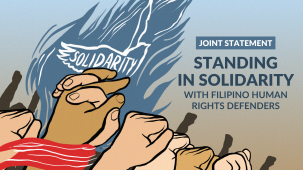On November 28, an international coalition of human rights organizations filed a legal opinion before the Constitutional Court of Serbia requesting judicial review of the Social Card Law – a law touted as promoting efficiency in the social protection system, but which the organizations argue falls within a dangerous global trend of digitalization of welfare state systems that is punishing and violating the human rights of the most marginalized communities.
“The introduction of new digital technologies and automated decision-making processes within welfare programs has already had devastating human rights impacts all around the world, and these are especially felt by historically marginalized groups. From the United Kingdom to India, digitalized welfare systems have exacerbated exclusion, leaving some beneficiaries without access to critical, life-saving entitlements,” says Victoria Adelmant of the Digital Welfare State & Human Rights Project (Center for Human Rights and Global Justice at New York University School of Law) and one of the organizations co-authors of the legal opinion.
The Social Card Law was implemented on 1 March 2022. According to the Serbian government, the purpose is to establish the Social Card Register. This centralized database would enable a fairer distribution of social welfare benefits for the most marginalized communities and prevent fraud.
The legal opinion affirms that the Social Card Law restricts, among others, the right to social security of the communities most in need of these benefits, particularly Roma, also contravening Serbia’s existing obligations under international human rights law, such as the European Convention on Human Rights and the International Covenant on Economic, Social and Cultural Rights
The opinion states that the data processing and automation contemplated by the law appear to be designed to exclude existing beneficiaries from the system, rather than making it fairer and eradicating poverty. In addition, with the automation of the system, those whose benefits are overridden have no reliable and open way to verify the accuracy of the information used to make that decision or to challenge it.
According to the Serbian human rights organization A11 Initiative, more than 10 percent of beneficiaries have been removed from the social protection system in Serbia since the law entered into force.
“The social protection system should be aimed at individuals. It should employ social workers who will be sensitive to people’s various difficult life circumstances. As it is, the process is completely dehumanized. The system primarily serves to sterilely process data, without context, and to try to find a way to deny access to users,” says Danilo Ćurčić from A11 Initiative.
Likewise, the organizations alert that the consolidation of sensitive data from across far-reaching spheres into a single register creates an intrusive digital surveillance system that poses severe risks to rights to privacy and data protection, in clear contravention of human rights-based data protection principles and data protection laws, such as the European Union General Data Protection Regulation (GDPR).
In line with reports by United Nations experts on the risks posed by “digital welfare systems”, the coalition warns that empirical evidence of the impacts of digitized and automated social benefits, welfare, and identification systems in other countries demonstrate how the human rights risks entailed by the Social Card Law in Serbia are more than theoretical concerns.
“The decision of the Serbian court will have a global impact because there are very few precedents of high courts analyzing digitization initiatives of such magnitude,” says Daniel Ospina from the Colombian organization Dejustica, also co-author of the opinion.
The brief illustrates with concrete examples how the implementation of digitalized systems has led to human rights violations in Australia, Colombia, India, Kenya, the Netherlands, Poland, Uganda, and the United Kingdom.


